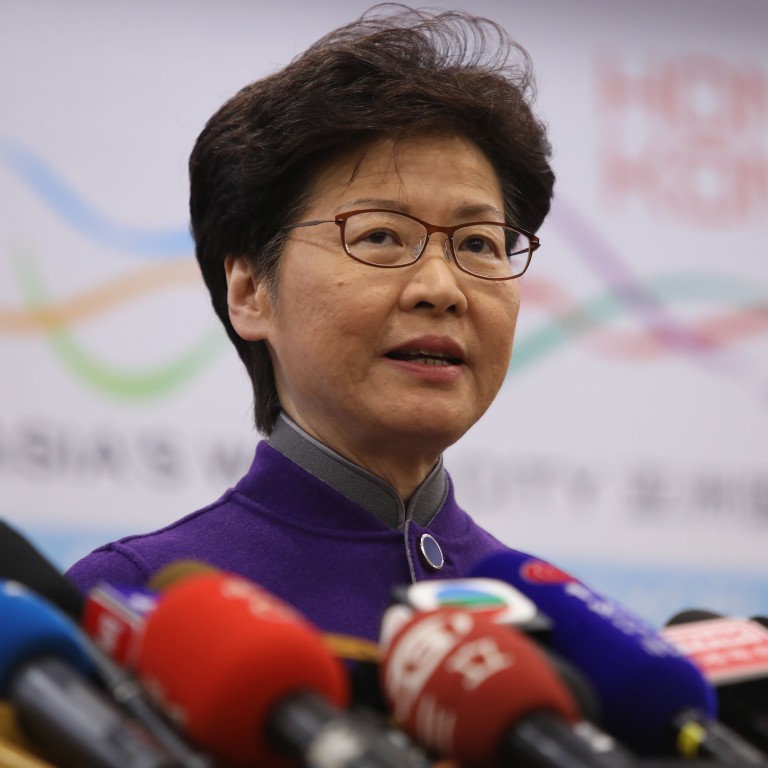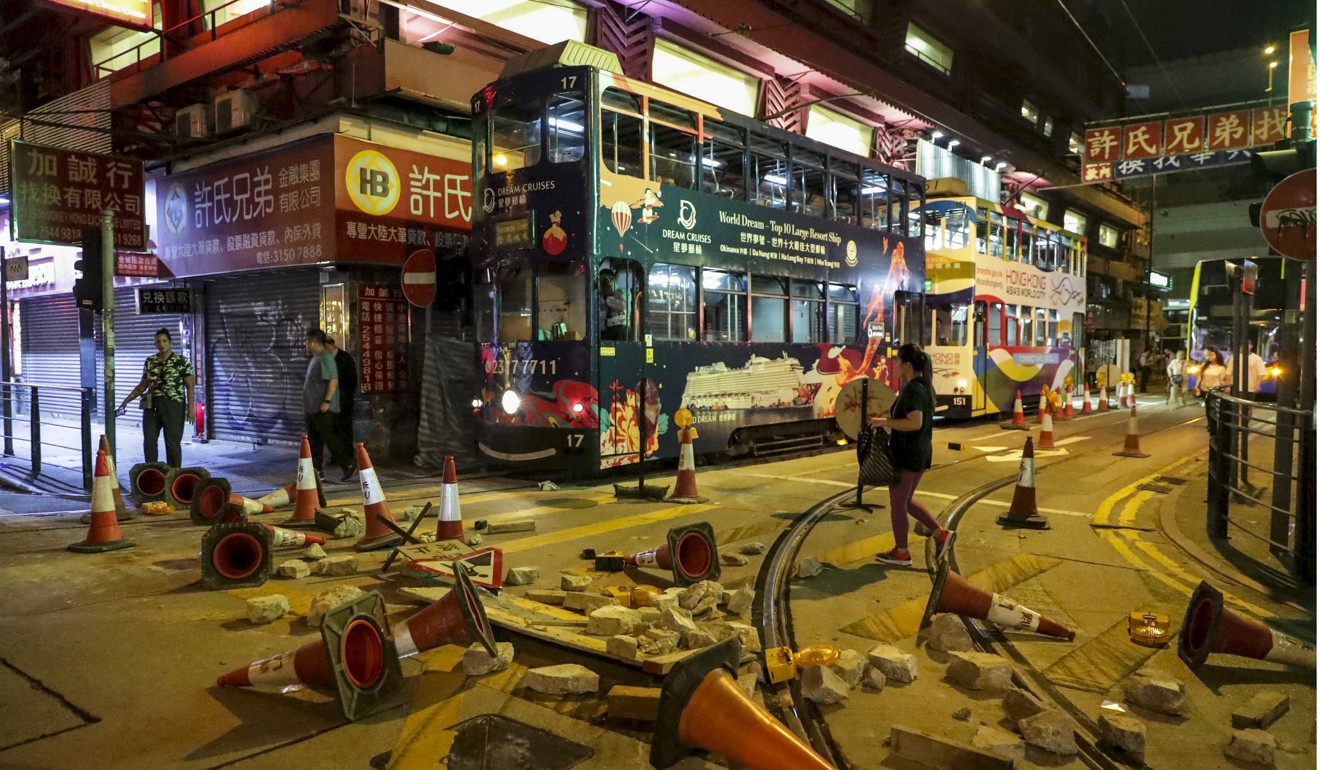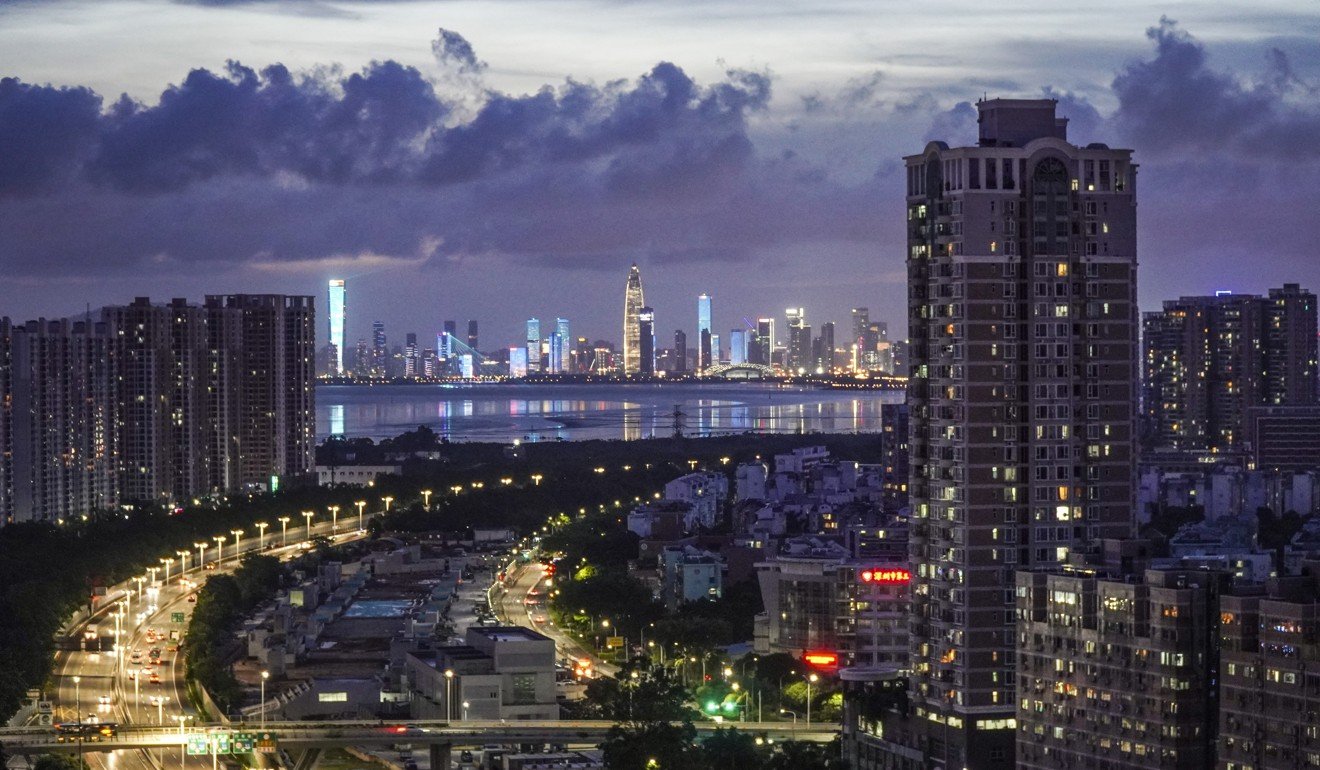
Beijing gives Greater Bay Area fresh push as Hong Kong leader Carrie Lam reveals 16 new measures including easing of restrictions on buying homes and school enrolment
- Chief executive, speaking in Beijing, also makes it clear that Hong Kong’s role under the ambitious national development project has not diminished
- Leading group agrees to roll out initiatives to make it easier for Hong Kong people to live, work and conduct scientific research in bay area
Beijing has promised to make it easier for Hongkongers to buy a home and send their children to local schools in the nine Guangdong cities under the Greater Bay Area integration plan, as Hong Kong’s embattled leader announced a raft of measures on Wednesday to push forward the scheme.
Chief Executive Carrie Lam Cheng Yuet-ngor, speaking in Beijing, also made it clear that Hong Kong’s role under the ambitious national development project had not lessened, even though the city has been plagued by almost five months of social unrest.
There had been speculation the central government could tone down Hong Kong’s role as one of the scheme’s four key cities because of the mass protests.
Lam was speaking after attending the bay area leading group’s third plenary meeting, which was chaired by Vice-Premier Han Zheng, on Wednesday afternoon.
At a media briefing in the evening, Lam said the leading group agreed to roll out 16 initiatives to make it easier for Hong Kong people to live, work and conduct scientific research in the nine Guangdong cities. Asked if Hong Kong’s role had been diminished, Lam said: “Simply put, there is completely no change at all.”

She said the new measures, decided by many state departments, had been handed over to the Hong Kong government to announce, suggesting the city had a significant role in the integration.
An important measure to benefit ordinary residents was the easing of restrictions on Hong Kong people buying homes in Guangdong.
“Many of these nine cities have purchase restrictions, specifying that Hong Kong people can only buy flats after living, working or studying there for a certain time, and have paid tax,” she said.
“Some of these requirements will be waived, and Hong Kong people will enjoy the same treatment as residents of the mainland cities.”
Another key measure for Hongkongers working in the nine cities is that they will be able to enrol their children in local schools if they prefer not to send them to international ones.
“We will ensure their children enjoy the same education as mainland children,” Lam pledged.
Authorities will explore the establishment of a cross-border wealth management connect scheme, an initiative welcomed by the Hong Kong Monetary Authority.
To provide job opportunities across the border, mainland authorities will work on recognising the professional qualifications of more Hong Kong lawyers and architects, as well as relaxing regulatory requirements for the city’s insurers.

“These will help Hong Kong’s professional sectors to enter the GBA and develop,” Lam added.
On scientific research, mainland authorities pledged to support the plan to set up an innovation and technology park in the Lok Ma Chau Loop border area, and to make it easier to transfer biotechnological and medical samples from Hong Kong.
“Policy bureaus will follow up with Guangdong and relevant central authorities on these 16 initiatives so they can be implemented as soon as possible,” Lam said.
Property firms see agents depart amid decline in commercial deals
Shih Wing-ching, co-founder of Centaline Property Agency, said the lifting of restrictions on home ownership would boost investment opportunities for Hong Kong people.
“But it can hardly resolve the city’s housing issues,” the Hong Kong businessman said.
“I’ve observed that not many Hongkongers would want to work and live on the mainland. It is also a reality that many youngsters share an anti-China sentiment.”
Sherman Lai Ming-kai, chairman of Centaline (China), said many of the nine cities had already relaxed restrictions for Hongkongers, describing the new measure as not particularly significant.
But he noted that more Hongkongers had bought properties in recent months as those buyers wanted a backup choice amid the ongoing turmoil.
Finance sector lawmaker Ronick Chan Chun-ying also said the measure on homes would open up options for Hong Kong people. Taking Zhongshan city as an example, he said Hongkongers were not allowed to buy new homes there under current restrictions.
“Lifting the restriction is quite significant, meaning a door to more choice for Hong Kong residents,” he said, adding that more people were considering buying properties in the bay area given its rosy prospects.
Lifting the restriction on homes is quite significant, meaning a door to more choice for Hong Kong residents
Chan said that although the initiative could do little to ease the strong local demand for homes in the short-run, it would encourage more elderly people to consider retiring in Guangdong in the coming decade – a time when a flood of retirees was expected in the ageing city.
National People’s Congress deputy Stanley Ng Chau-pei said the initiative on education was good news for Hongkongers working on the mainland.
“Most of them have to bear high costs and send their children to private schools,” he said. “With the quality of education improving on the mainland, more parents would not mind sending their children to local schools if they could.”



